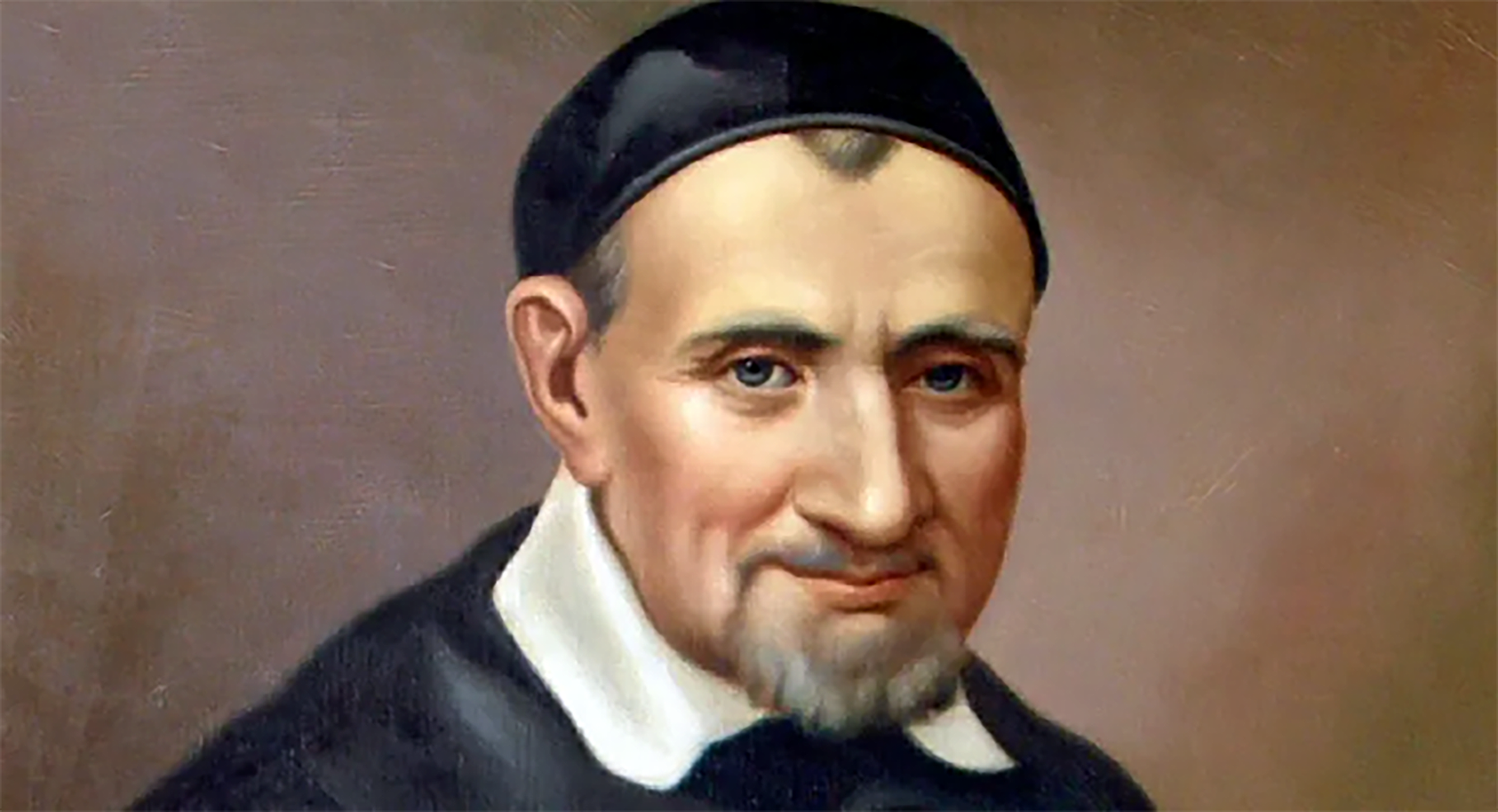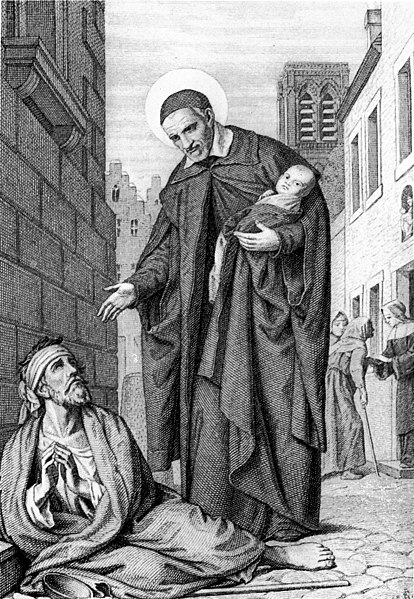OUR FOUNDER

about st. vincent depaul
St. Vincent de Paul lived and ministered for the poor, the neglected, the outcast. But he didn’t begin his life that way.
Born to a peasant family, Vincent’s parents worked hard to make ends meet. Recognizing his intelligence, Vincent’s parents wanted him to have better opportunities, so they sold their ox to pay for his schooling. Ambitious and hopeful, he left for the seminary and applied himself to his studies. However, his ambition had a negative side. When his father came to visit him at the seminary, Vincent wouldn’t go out to greet him, because he was embarrassed by his father’s shabby clothing.
In 1600 he became a priest and spent his first years working with the wealthiest families in France. It wasn’t until he was called to hear the confession of a poor, dying man that his heart—and life—changed. While he listened to the peasant’s confession, Vincent could see that this man knew nothing about his faith. Shortly afterwards, Vincent preached a sermon, begging the people to take their faith seriously. Their response overwhelmed him. For hours the villagers stood in line to go to confession. He was amazed by their eagerness to learn, so he began instructing them and helping them prepare for the sacraments. As he grew in awareness of the magnitude or pervasiveness of the problems, he realized there were far more people than he alone could help. Soon, three other priests joined him; they devoted themselves to the salvation of the poor and began preaching throughout France. From this, the Congregation of the Mission was born.

However, Vincent knew that this was not enough. “Before we can save the souls of the poor,” he said, “we must give them a life worthy of the name.” So they began dedicating themselves to works of charity, as well—ministering to slaves, war victims, the sick, the poor, the abandoned. Again, the need was far greater than they could manage, so Vincent founded the Daughters of Charity, the Confraternities of Charity, and the Ladies of Charity.
With the increasing demand of spiritual guidance and good works came the need for increasing recruitment and education of the next generation of clergy. Soon retreats and conferences were held to develop new priests and followers.
Throughout his formation of a religious society, Vincent was first and foremost a man of prayer. He knew that prayer was essential to his work. “You must have an inner life,” he said, “everything must tend in that direction. If you lack this, you lack everything.”
At the end of his life, his body worn out from years of living and working with the poor, he had to be carried to the chapel for Mass. Although he was in continual pain, he was gracious to everyone who visited him. At his funeral, the preacher declared that Vincent had “transformed the face of the Church.” No one disputed this claim.
More than 400 years later, Vincentian Priests and Brothers follow his example of holiness and energetic labors, dedicating their lives to prayer, community life, and evangelical service, seeking out those most in need of God’s love and mercy. St. Vincent, pray for us.
